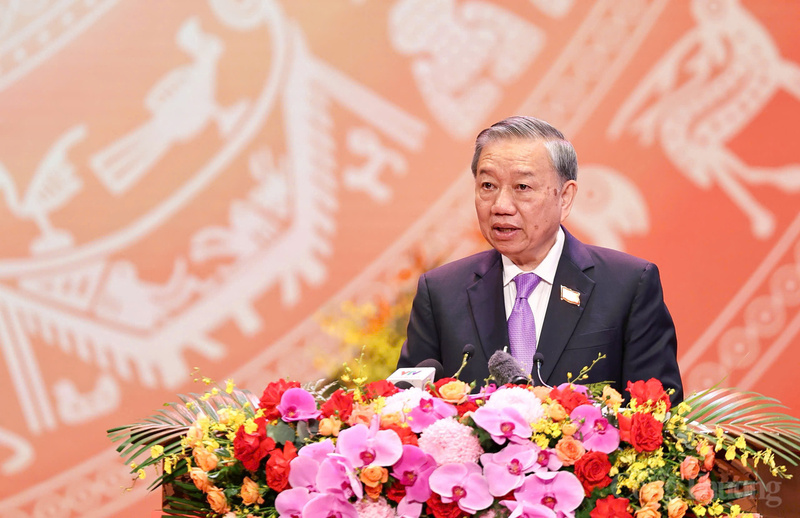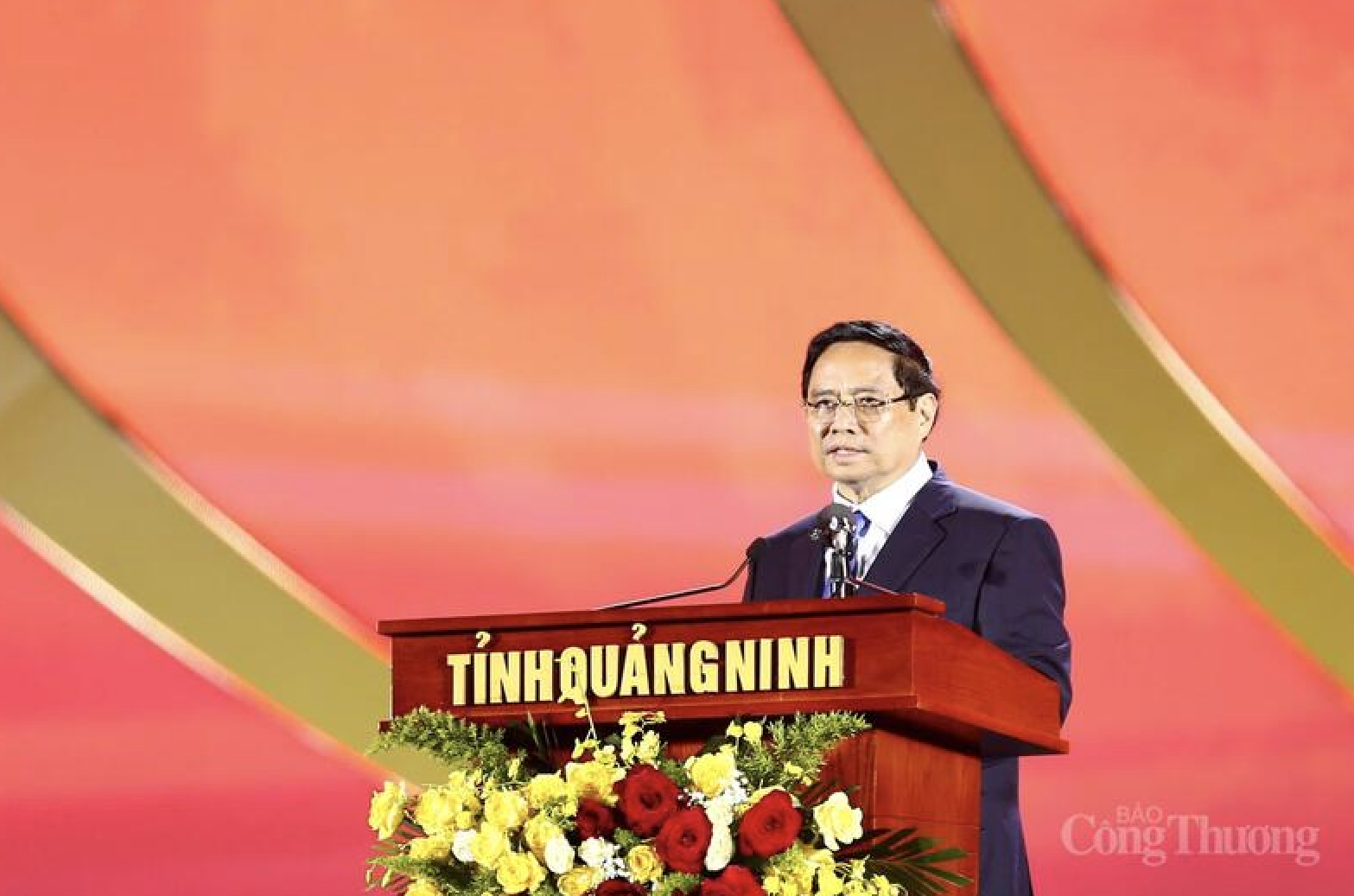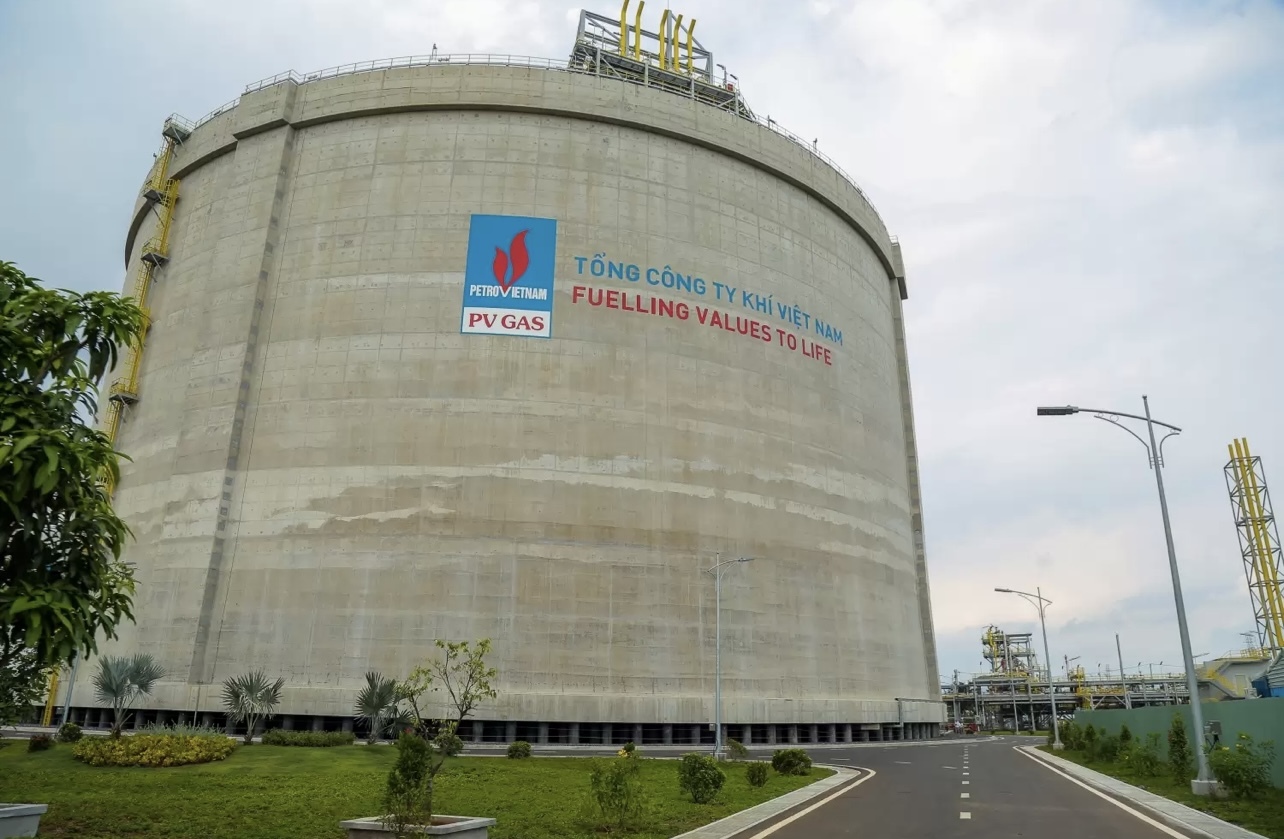
Vietnam’s leaders attend ceremony marking 80th anniversary of government
19:05 | 23/03/2025 17:07 | 20/08/2025News and Events
At the 1st Congress of the Party Committee of the Ministry of Industry and Trade for the 2025–2030 term, following the approval of the draft political report for the 2020–2025 tenure, Deputy Secretary of the Party Committee and Deputy Minister of Industry and Trade Nguyen Sinh Nhat Tan, on behalf of the Presidium, delivered the official political report.

Deputy Secretary of the Party Committee and Deputy Minister of Industry and Trade Nguyen Sinh Nhat Tan.
Remarkable outcomes achieved in the 2020–2025 term
According to the political report, the Party Committee, formerly the Party Caucus Committee and now the Standing Committee of the Party Committee, has played a pivotal political role, strictly adhering to the Party's direction while providing comprehensive, coordinated, and effective leadership across all tasks.
The Party Committee has successfully led the sector to fulfill its political missions, upheld its role as a pillar of national development, ensured energy and petroleum security, and maintained the supply of essential goods. Party-building work has been strengthened, discipline enforced, and leadership capacity and combat strength significantly improved. Institutional and policy breakthroughs have been promoted, and the growth model has been restructured in line with the country’s goals of industrialization, modernization, and international integration.
Organizational structures have been streamlined and strengthened, improving administrative efficiency and reducing intermediate layers. Administrative reform and the business environment have seen substantive progress, with increased application of digital technology and movement toward e-Government and digital Government.
Inspection, supervision, and citizen reception work has been implemented rigorously with renewed focus. Inspections and audits have been targeted and effective. International economic integration has advanced, contributing to Vietnam’s global standing and active participation in addressing global challenges and promoting development cooperation.
During the 2020–2025 term, the Ministry of Industry and Trade achieved notable results across several core areas. The industrial sector remained a key driver of growth, contributing over 30% to GDP, with processing and manufacturing accounting for 80% of the total. Electricity supply met national demand, while the oil and gas sector ensured stable fuel supply for production and consumption. Export growth averaged 10% annually, keeping Vietnam among the world’s top 20 exporters. Domestically, retail and service revenue increased steadily, and e-commerce reached US$25 billion by 2024, reinforcing the digital economy.
Efforts to restructure the growth model yielded positive outcomes. The average industrial production index rose by 6.3% annually, and renewable energy development accelerated, accounting for nearly 27% of capacity. Export-import structures shifted towards processed and high-value goods, while trade diversification reduced reliance on traditional markets.
The Ministry led major legal reforms, proposing over 250 legislative documents and several landmark laws. Integration efforts expanded with the signing of four new FTAs, bringing the total to 17 agreements with 65 partners. Trade promotion was modernized through digital platforms, supporting nearly 1,000 national brands. Trade defense capacity improved, with 55 investigations initiated and 32 trade remedies applied.
Administrative reform progressed significantly, with the Ministry among the top performers nationwide. More than 95 procedures were removed or simplified, and digital public services expanded across all key sectors. Local industry received support through rural industrialization programs, while green growth and environmental protection were integrated into FTAs and development strategies.
Seven key tasks for the 2025–2030 term
In the 2025–2030 period, the Party Committee of the Ministry of Industry and Trade is committed to enhancing comprehensive Party building, strengthening leadership capacity, and ensuring clean and strong governance. The Ministry aims to lead the sector in realizing the national vision of a modern industrial country with high income by 2030, contributing to Vietnam’s global competitiveness and economic resilience through 7 key tasks:
First, strengthen the Party’s leadership role by building a clean, strong, and comprehensive Party Committee within the Ministry of Industry and Trade. This includes consolidating internal unity and enhancing the political will and execution capacity of all Party members.
Second, restructure and streamline the Ministry’s organizational apparatus to ensure clear functions and responsibilities, improving governance efficiency and responsiveness. A special focus will be placed on strategic policy advisory and institutional reform in the context of integration and digital transformation.
Third, continue refining the institutional and policy framework to unlock development resources and ensure consistency with national development goals.
Fourth, prioritize the development of a unified legal system for industrial policy, ensuring consistency from central to local levels and across key sectors.
Fifth, accelerate human resource development by promoting scientific research, innovation, and digital transformation. Emphasis will be placed on enhancing domestic value creation in production and trade, while developing modern infrastructure in energy, industry, and commerce.
Sixth, deepen international economic integration by diversifying export markets, upgrading existing FTAs, and expanding cooperation in industry, trade, and energy.
Seventh, promote sustainable development of both the private sector and state-owned enterprises, enhancing their competitiveness in global markets. This includes supporting businesses to move deeper into global value chains and fostering the growth of large-scale corporations in key sectors such as manufacturing, exports, energy, distribution, and logistics.
Six strategic breakthroughs for the 2025–2030 term
First, drive institutional and policy reform through the establishment of a synchronized and modern legal framework for the industrial and trade sectors. This foundation will be essential for mobilizing all available development resources.
Second, invest in high-quality human resource development, with a focus on applying advanced science and technology, fostering innovation, and building modern infrastructure in energy, industry, and trade to enhance productivity and added value.
Third, foster the rapid growth of a competitive business sector by prioritizing the formation of large private and state-owned enterprises capable of mastering regional and global value chains.
Fourth, innovate the Party’s leadership model through comprehensive digital transformation in Party affairs, aiming to build a modern, flexible, and adaptive Party organization aligned with the digital era.
Fifth, reform personnel practices to build a generation of Party officials with strong political commitment, professional integrity, and the ambition to serve. Officials will be encouraged to think boldly, act decisively, and take responsibility.
Sixth, advance Party administrative reform by streamlining organizational structures, clearly delineating functions and duties, improving inter-agency coordination, and implementing decentralized management with strong oversight and smart workflows.
MoIT's key indicators by 2030:
- 100% completion of legal tasks assigned by the National Assembly, Government, and Prime Minister.
- Fulfillment of all sectoral development targets set for 2025–2030.
- Industrial sector to reach ~35% of GDP; manufacturing to account for ~28%. Industrial production index to grow 12–12.5% annually.
- Export growth: 13.5–14.5% per year; domestic sector exports: 10–12%.
- Retail and service revenue to grow 13.0–13.5% per year.
- Energy supply to fully meet domestic demand with average annual GDP growth of 10%.
- Renewable energy to account for 30% of power generation by 2030.
- Energy intensity (per GDP unit) to decline by 1–1.5% annually; final consumption savings to reach 5–7%.
- 100% Party members to study and implement resolutions of the 14th National Party Congress, Government Party Congress, and MoIT Party Congress.
- 100% affiliated Party cells to develop implementation plans for these resolutions.
- 100% Party members to register to follow President Ho Chi Minh’s ideology, morality, and style in line with Politburo regulations on revolutionary ethics.
- At least 10–15% of Party members to be rated “excellent”; over 90% of organizations rated “good” or higher; 3–4% new members to be admitted annually.
- 100% Party cells to conduct self-monitoring and auditing; at least 20% audited under Party regulations; 4–6 Party units to be monitored annually.

19:05 | 23/03/2025 17:07 | 20/08/2025News and Events

19:05 | 23/03/2025 11:20 | 18/08/2025News and Events

19:05 | 23/03/2025 21:36 | 17/08/2025News and Events

19:05 | 23/03/2025 15:55 | 17/08/2025Industry

19:05 | 23/03/2025 15:20 | 17/08/2025Society